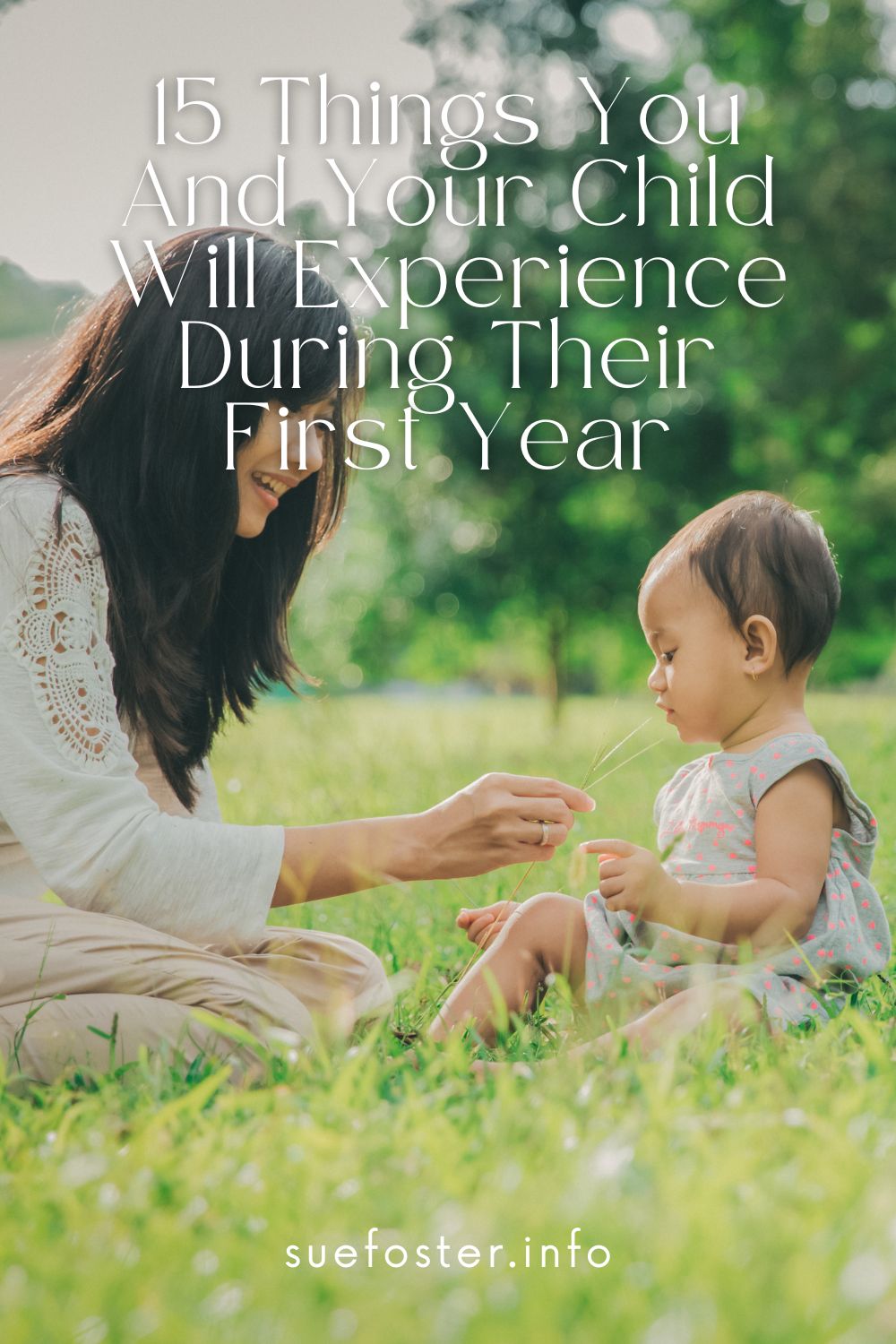After your pregnancy photoshoot and the exhausting but rewarding labour experience, you have finally welcomed your child into the world. It doesn’t matter if it is your first kid or one that makes a loving family even bigger, you are undoubtedly excited about watching them grow, learn, and become the happiest child possible.
A child’s first year is one of the most important in their development. Here, they will learn a range of things that sets them up for the future and ensure they are ready for their second year and beyond. Although every child is different, it’s important to know what to expect for you and them so here are fifteen things you and your child will experience during their first year.

Recognising Your Voice
Kids are like sponges when they are younger. They take everything in, even if they won’t remember it later on or have the capability to communicate anything right now. One of the first things that will happen is their ability to recognise your voice. Your baby will quickly understand that you and your partner are the two who care for them, and – although subtle – they will turn their head to your voice when you speak to them.
Recognising Their Environment
Besides you, your child will also be able to recognise their environment. After a few weeks, they can notice objects around one foot away from them. This doesn’t seem like much, but it is a vital step in your child’s development that you can encourage. Since you are typically around a foot away from them while feeding them, you can engage their sight by gently moving your head so their eyes follow you.
Plenty of Cuddles
These first few weeks mean your child will become comfortable around you and your partner. They consider themselves safe when they are with you, which translates to snuggling up against you when sleepy or crying. If your child is crying, holding them close so they can smell you can calm them down as they know they are in safe hands.
The First Smiles
Although your child doesn’t have teeth, they will still flash a smile after around one-and-a-half months. Parents never really know what their child is smiling about and it could be something completely random. Still, it can help you get to know your child better, especially if they react positively to certain sounds, food, and places. These giggles will be the first of many, and it’s a great time to write about them in your baby journal.
Rolling Over
Your baby becomes stronger each day, and while they might struggle to hold their head up by themselves, they can do other things. You may notice they start to roll over (or at least try to). This is one aspect of a host of other exciting developments your child is going through and is becoming much more like a child than a baby, meaning you can start thinking about how to engage them in play.
Sleep Struggles
It is not all plain sailing, however, and this includes co-sleeping arrangements. Even if your child has always slept well, there could come a point around four months when they start to resist sleep. This can cause problems, especially as they may act out because they are so tired but refuse to go to sleep. If (or when) this happens, you can research tips for coping with a baby who fights sleep, including co-sleeping strategies, to get ideas on what to do to ensure they are happy, comfortable, and rested.
Moving Around the House
At around 15 – 20 weeks, your baby will begin moving around with greater ease. Their motor skills are not fully developed yet, and they may get tired quickly, but they will still interact with their environment more frequently. They aren’t going to go far, but you should still supervise them at all times to ensure they do not hurt themselves.
Trying to Eat Everything
Part of interacting with their environment means your child will be curious about how things taste. For parents who know that meal times can be a battle, this is particularly frustrating. They won’t eat baby food but are happy to stick anything else in their mouths. Since there is a significant choking hazard, you can check out these safety tips that will let your child embrace their taste and curiosity without putting themselves in danger.
Motor Skills
All babies operate on varying timelines, so parents can encourage motor development by handing them toys to play with and engaging their movement. This isn’t something that will make your child super independent overnight, but it can set the groundwork for a stronger child who loves to play and can grip things in their hand. They may still drop them or struggle with placing them back in the right place, but it is a sign of early progress you should celebrate.
A Little More Independent
In baby terms, anyway. It would be best if you still supervise your child at all times, but they may not need you to do everything for them. By six months, your child can take some control of their play, and they may not even need encouragement. Instead, they will happily play with their toys if you leave them in their crib or playpen.
Likes and Dislikes
This is also when your child is more open about what they like and dislike. They won’t be able to communicate through words, but pulling faces or moving away from toys and food can give you a solid indication of what your child prefers. As their parent, you can adjust their diet or approach to play so they are a happy child. Try not to run the risk of spoiling them, though.
Forming Words
Towards the end of their first year, your baby will start forming words. These may not be actual words, yet it’s still a big indicator that they are making progress. Many babies will make noises that sound like words, but it’s mostly just putting consonants together. Still, if you continue speaking to them and point out various things they can associate with words, you boost their chances of learning to speak quickly.
Baby-Proofing
You will also need to think about babyproofing your home ready for when your child learns to crawl. By now, you may be more confident that your child will survive without you for a few minutes, but it’s still worth covering all sharp edges and sockets to eliminate the risk of accidents and injuries.
Try this Baby proofing kit designed for the home and kitchen, which includes secure magnetic childproof cabinet locks, adjustable straps for the fridge, freezer, and bin, as well as a protective oven guard. The kit also features cushioned corner guards and handy door stoppers to further enhance safety, providing a comprehensive child safety solution for every parent.
The Art of Imitation
Since your child has spent every minute with you over the past 11 or 12 months, don’t be surprised if they show some signs of imitation. Of course, this is the sincerest form of flattery, so it’s something you should embrace. They may mimic actions in their special way, which is bound to provide entertainment.
Becoming a Toddler
As they reach the end of their first year, you will notice that your child may not fit into their baby clothes anymore. You have several choices about what to do with them. Some parents will donate old baby clothes to friends or charities. But you could also store them for now if you plan on having another child.
Their First Year
Your child’s first year will go by in a flash, but there is something about the experience that makes you remember everything, even the little things that seem so inconsequential at the time. These tips can help prepare you but also allow you to make the most of every moment during your child’s first year so you can look back on it fondly.


